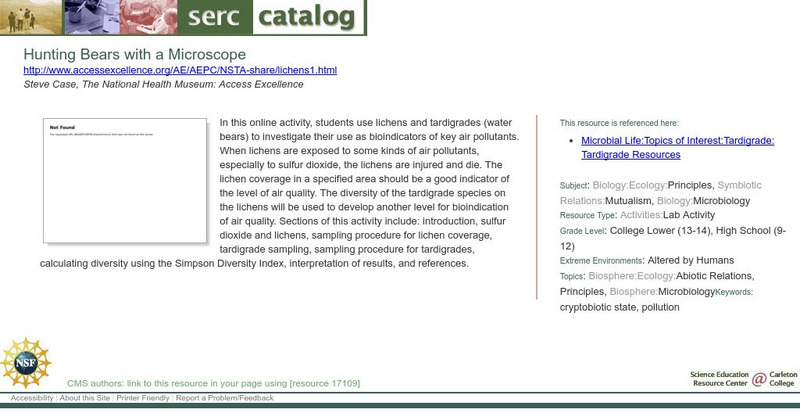Curated OER
Counting Animal Populations
Students learn how to count animal populations by the Mark and Recapture method. In this counting animal populations lesson plan, students begin by predicting amounts of different candies in a jar. Students then simulate using beans, two...
Curated OER
Pollution Solutions
Students visit a local park to test the quality of the aquatic environments. They search for sources of pollution and examples of pollution control. Based on their obeservations and experiments, they rate their local environment.
Science Buddies
Science Buddies: Froggy Forecasting: How Frog Health Predicts Pond Health
Have you ever heard the expression "a canary in a coal mine"? In the 1900s and earlier, coal miners brought canaries with them into the mines to act as early warning signals. The canaries were very sensitive to low levels of dangerous...
Science Education Resource Center at Carleton College
Serc: Healthy Waters
By the end of this activity, learners will understand how we can use macroinvertebrates to determine the quality of water in a river or stream.
Science Education Resource Center at Carleton College
Serc: Using Benthic Marcoinvertebrates to Determine Biodiversity in a River
In this investigation of macroinvertebrates, students will build rock baskets and place them in various parts of a river to collect insects. Students will group insects according to their pollution tolerance and use the PTI to determine...
Science Education Resource Center at Carleton College
Serc: Hunting Bears With a Microscope
In this study, students will use lichens and tardigrades (water bears) to investigate their use as bioindicators of key air pollutants.







